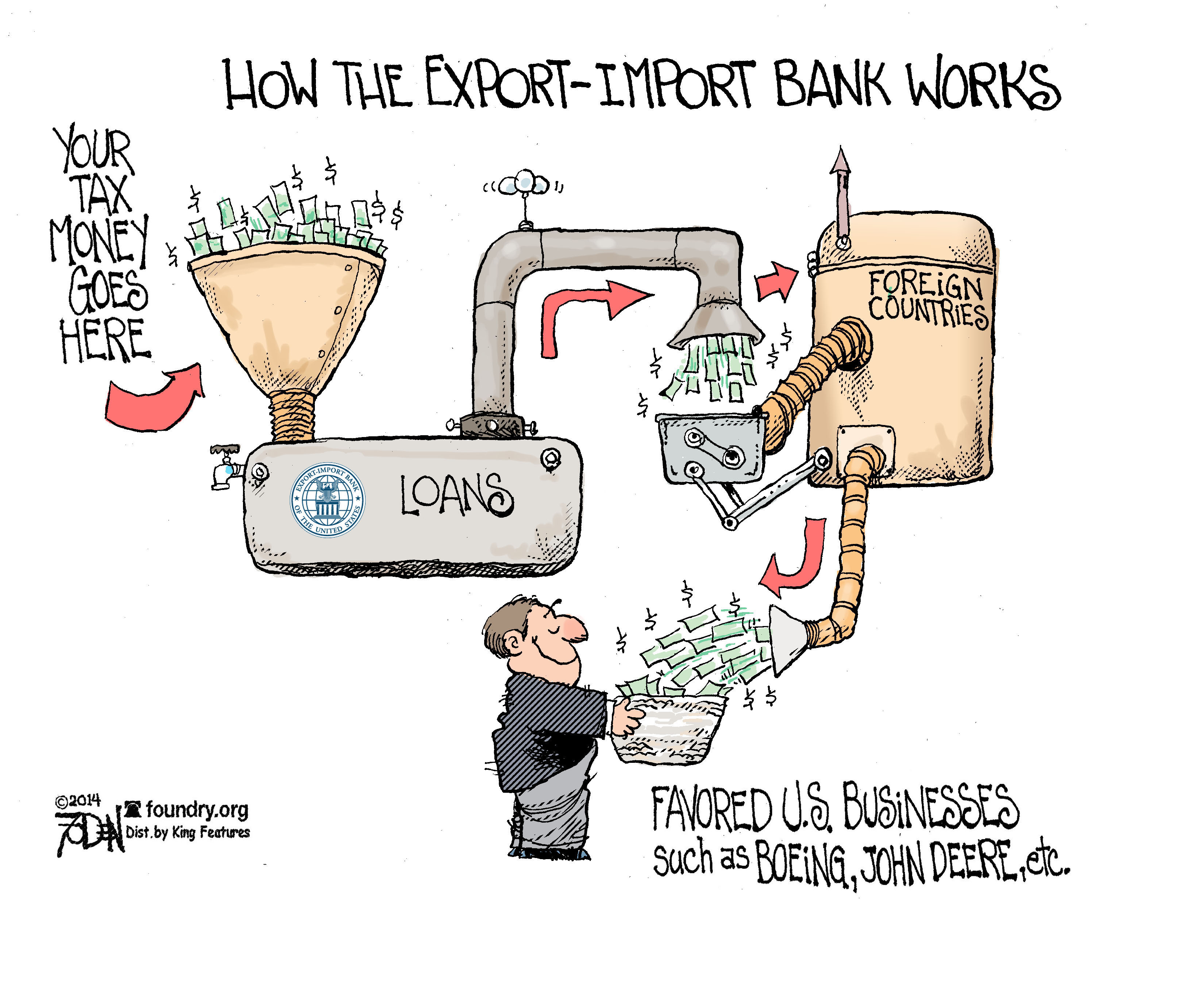The Export-Import Bank is noxiously corrupt example of crony capitalism.
It never should have been created. But that’s something we could say about most government programs.
So the real question is how to reverse the damage.
If we reform a big program such as Medicare, you can’t end it overnight. You have to deal with the reality that millions of people have made plans based on government policies. And even if those policies are wrong, you can’t pull the rug out from folks who did nothing wrong.
So it’s important to put in place appropriate and fair transitions when reforming a major program.
Recommended
But that’s not an issue with the Export-Import Bank. It provides undeserved subsidies to big companies. Those big companies will be just fine without having their snouts in the public trough. The right thing to do, from both a moral and economic perspective, is to shut it down immediately.
Indeed, this should be a test as to whether supposedly pro-taxpayer politicians in Washington understand the critical difference between being pro-business and being pro-market.
But what about the argument that the Export-Import Bank is somehow a win-win for the American economy? I tend to automatically dismiss such claims for the simple reason that all sorts of companies in the private sector would do what the Ex-Im Bank is doing if it really was a money maker.
But with the issue heating up, it would be a good idea to examine this claim more closely. Fortunately, Matt Mitchell (no relation) of the Mercatus Center does an excellent job of explaining the dodgy economics of the Ex-Im Bank is this short video.
In some sense, Matt is channeling Frederic Bastiat, the great French thinker who said that a good economist looks at both direct and indirect consequences of policies (the “seen” and the “unseen”).
Matt shows that the negative indirect impact of the Ex-Im Bank is far larger than any putative benefits generated by handouts to politically well-connected firms.
Just like bailouts, s0-called stimulus, and green-energy programs all look bad when you examine all the costs and benefits.
For more information, I also recommend this superb video on why cronyism is so corrosive.
And if you want a humorous analysis, scroll to the bottom of this post and see what the Kronies have to say about the Ex-Im Bank.
Or just enjoy this Glenn Foden cartoon.
P.S. I shared six jaw-dropping examples of left-wing hypocrisy last month.
But maybe it’s time to create a special Hypocrisy Hall of Fame, because the Wall Street Journal reveals that we another member who would be a shoo-in for the award.
It seems that Warren Buffett was not being terribly sincere or honest when he said people like him should be paying higher taxes.
Now this is awkward for President Obama and Senate Democrats. …Warren Buffett’s Berkshire Hathaway is expected to help finance Burger King’s pending acquisition of Canadian doughnut-chain Tim Hortons. The deal will allow Miami-based Burger King to claim Canada as its new legal home for tax purposes. Beltway Democrats had been hoping to use a recent wave of such corporate inversions as a campaign tool. The idea was to propose new taxes on the companies that move. Step two was to beat up Republicans who don’t agree to make the free world’s most punitive corporate tax system even more punitive. But now that Democratic tax hero Mr. Buffett has been spotted surfing on top of this wave, the political challenge has become more difficult.
Sort of makes you wonder whether Buffett endorses higher taxes for the self-interested reason that the political class will then give him a free pass on issues such as the Burger King inversion?
Shocking, just shocking, to think that rich leftists are hypocrites.



